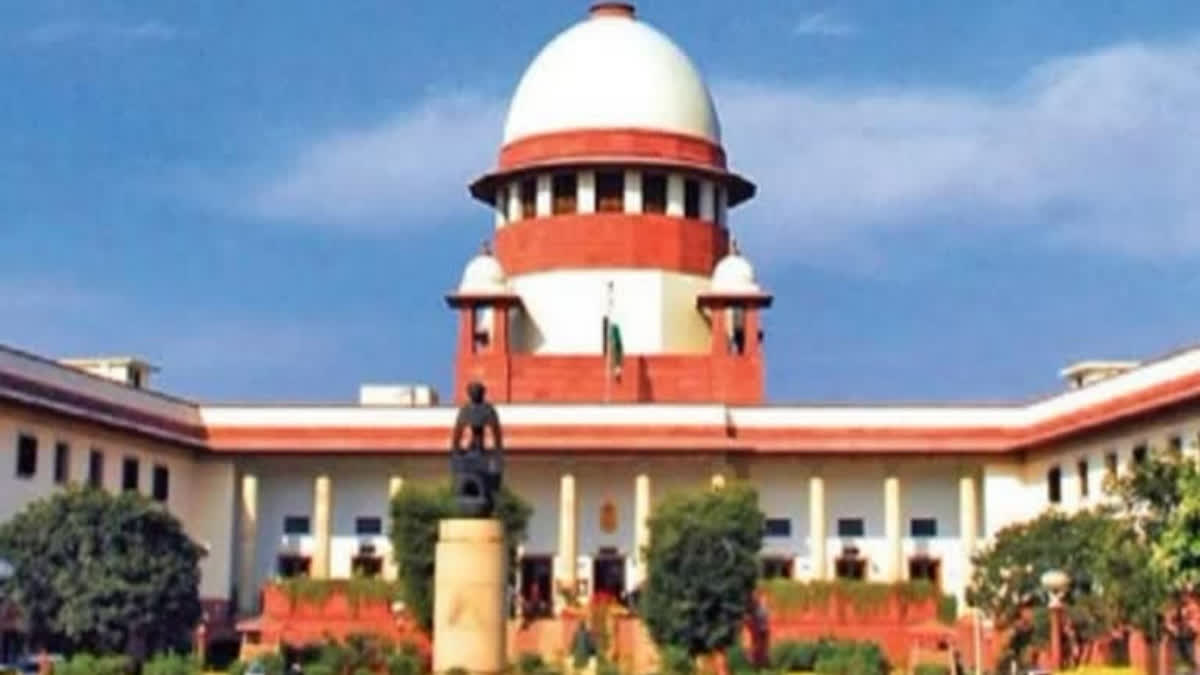New Delhi: The data released by the Supreme Court stated that a total of 69,379 cases have been pending in the top court as of March 1, 2023. The figures have slightly improved compared to January wherein the pending cases stood at 69,768 while in February 69,511. In all, 50,129 admission matters and 19,250 regular hearing matters are pending in the court. In admission matters, there are 40,405 such cases in which all preliminaries are complete and they are ready for hearing and 9,724 matters are such in which preliminaries are not completed and they are not ready for hearing.
In regular hearing matters there are 19,225 matters are such which have their preliminaries finished and 25 are such in which preliminaries are not completed and they are not ready for hearing. Preliminaries include process fees, a serving of notice and completion of pleadings. Today 14.05% are such matters in which preliminaries are not completed.
A total of 463 constitutional bench matters are pending. While 313 are pending before five judges bench, 15 are pending before seven judges bench and 135 are pending before nine judges bench. Forty-seven are main matters and 416 are connected matters and the top court has been putting focus since last year on disposing of constitutional cases.
Also read: 70k cases pending in Supreme Court, as per Dec statistics
Last year when former CJI UU Lalit took charge he constituted constitutional benches that would hear cases regularly. The practice has been continued in CJI DY Chandrachud's tenure as well. Every week for two to three days constitution benches sit and hear the cases at length on regular basis, which leads to expeditious disposal of cases.
Petitions challenging demonetisation and reservation for economically weaker sections (EWS) were pending for years and were concluded after regular benches were constituted to hear the matters. The pendency of cases has been highlighted in Parliament by Law Minister Kiren Rijju while SC judges also highlighted about them.
Vacancy and infrastructure are major reasons for the piling up of cases. Collegium and government have been actively approving names so that judges are appointed and the burden of cases is shared. SC Collegium has also issued statements in the recent past regarding names that have been pending before the government for approval. A case dealing with the government sitting over names is also being dealt with by the court. Court has pulled up the government for not approving names in the approved timeline and has issued directions as well to fill the vacancies expeditiously.
Also read: Chief Justice UU Lalit seeks explanation from SC registry over pending cases
Supreme Court judges have been sitting past their court time, often during lunch as well to finish the list of cases that are before them every day. Hundreds of cases are being heard every week and many old cases are dug up and listed for hearing for their disposal. Judges have been reluctant to grant an adjournment and often pursue advocates to argue the case and not wait for their seniors. As per them, it would lead to faster disposal of cases and also the practice of junior lawyers, who usually don't get a chance to argue with seniors. Judges have often expressed their views on the overburden of cases on them.
CJI DY Chandrachud and CJI NV Ramana said that people often assume that judges have less work since they sit in the court from 10.30 am to 4 pm. They said that people don't realise that they work on cases even past 4 pm, have to burn the midnight oil to study all cases and write judgements on weekends or holidays.
Often during the hearing of the cases, it can be heard that judges received a certain file post midnight and they had to read it or be awake because of cases so that it can be heard the next day. In such cases when adjournment is sought, judges often slam advocates for not being prepared even when they have less work.



